What Are Aromatherapy Essential Oils Used for
aromatherapy oils are a holistic healing practice that utilizes the therapeutic properties of essential oils derived from plants.
These oils offer a wide range of benefits, from reducing stress and anxiety to relieving pain and inflammation.
We will explore the different types of aromatherapy essential oils, effective ways to use them, and potential risks or side effects to be aware of.
Come with us as we delve into the world of aromatherapy and discover its powerful healing potential.
Key Takeaways:
What Is Aromatherapy?
Aromatherapy is a holistic medical treatment that uses plant extracts, known as essential oils, to promote health and well-being.
These essential oils are extracted from various parts of plants, such as flowers, leaves, stems, bark, or roots, through methods like distillation or cold pressing. Each essential oil carries a unique scent and therapeutic properties that can positively impact a person’s physical and emotional state.
Aromatherapy has roots dating back thousands of years, with ancient civilizations like the Egyptians, Greeks, and Romans utilizing aromatic plant oils for healing purposes. Today, the practice of aromatherapy has evolved with the establishment of industry standards and regulations guided by organizations like the National Association for Aromatherapy (NAHA).
What Are Essential Oils?
Essential oils are concentrated extracts derived from various parts of plants through methods like distillation. These oils contain the natural chemical compounds that give plants their characteristic fragrance and properties.
These chemical compounds include terpenes, alcohols, esters, and more, each offering unique therapeutic benefits.
For example, the terpene limonene found in citrus oils is known for its uplifting and energizing properties, while the antimicrobial properties of phenols like thymol make oils like oregano effective against bacteria. Learn why aromatherapy oils are used for various purposes.
The method of extraction plays a crucial role in preserving these compounds; methods range from steam distillation to cold pressing.
When used in aromatherapy or massage, essential oils can help reduce stress, improve sleep quality, and alleviate various ailments.
How Are Essential Oils Extracted?
Essential oils are extracted through various methods, with distillation being a common technique. There are different types of distillation processes used, such as steam distillation which is popular in both French and German aromatherapy practices.
Steam distillation is a gentle and efficient method of extracting essential oils from plants. In this process, steam is passed through the plant material, causing the essential oils to be released. The steam then carries these oils into a cooling system where they are condensed back into a liquid form.
While the technique itself is similar, the French and German approaches to aromatherapy distillation do have some subtle differences. French distillation often emphasizes slower, longer distillation processes to extract a wider range of volatile compounds, while German distillation focuses on rapid extraction to capture specific components quickly.
What Are the Benefits of Aromatherapy Essential Oils?
Aromatherapy essential oils offer a wide range of benefits for both physical and emotional well-being. Research has shown that these oils can have positive effects on various health conditions and help in promoting relaxation and reducing stress.
Studies have indicated that essential oils such as lavender, peppermint, and eucalyptus contain compounds that possess anti-inflammatory and analgesic properties, making them effective in managing pain and inflammation. The inhalation of essential oils can stimulate the limbic system in the brain, which is responsible for controlling emotions, thus aiding in mood regulation and reducing feelings of anxiety and depression. Incorporating essential oils into daily routines through diffusers, massages, or baths can provide a natural and holistic approach to overall well-being.
Reduces Stress and Anxiety
One of the key benefits of aromatherapy essential oils is their ability to reduce stress and anxiety. Lavender essential oil, in particular, has been widely studied for its calming effects on the mind and body.
Research conducted at the University of Minnesota found that inhaling lavender oil can lead to a decrease in perceived stress levels and an overall improvement in mood. In another study by the University of Maryland Medical Center, lavender essential oil was shown to have sedative and calming properties, helping individuals relax and alleviate symptoms of anxiety.
The Journal of Alternative and Complementary Medicine published a review that highlighted the positive impact of lavender aromatherapy on stress reduction and sleep quality. With its soothing scent and therapeutic properties, lavender is a popular choice for those looking to unwind and find tranquility.
Improves Sleep Quality
Another benefit of aromatherapy essential oils is their ability to improve sleep quality. Certain oils like chamomile are known for their relaxing properties that can aid in promoting restful sleep.
Aromatherapy essential oils, specifically chamomile, have been utilized for centuries to create a tranquil atmosphere favorable for slumber. The gentle, floral scent of chamomile is renowned for its calming effect on the mind and body, helping to alleviate stress and anxiety before bedtime.
By diffusing chamomile essential oil in the bedroom, individuals can set the stage for a peaceful sleep environment. The aromatic compounds in chamomile engage with the brain’s limbic system, triggering a cascade of relaxation responses that can induce a state of tranquility conducive to deep, rejuvenating sleep.
Boosts Immune System
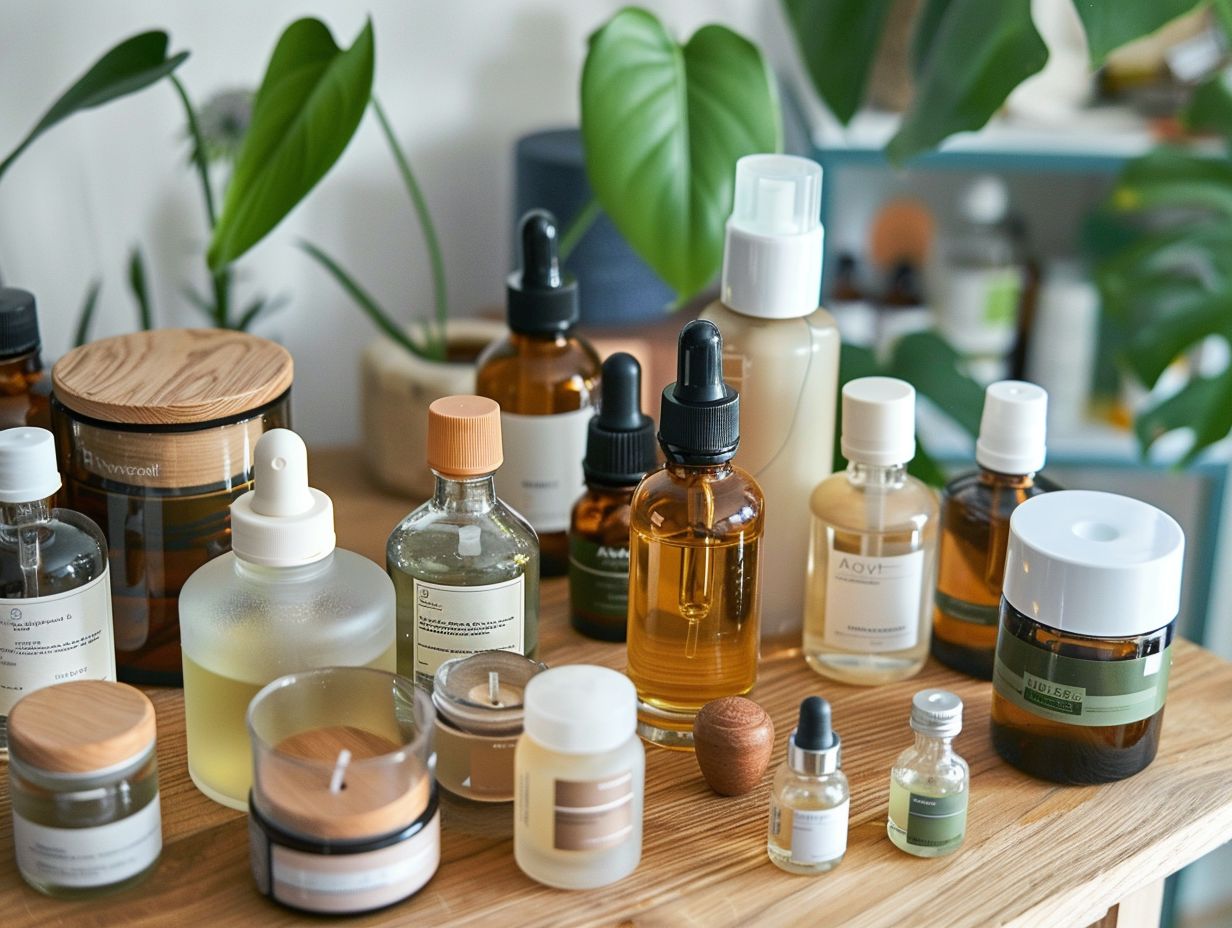
Aromatherapy essential oils are also believed to boost the immune system. Cedarwood essential oil, for example, has antimicrobial properties that can support overall immune health.
Using cedarwood essential oil in aromatherapy can help in strengthening the body’s natural defense mechanisms. The oil’s antimicrobial properties not only combat harmful pathogens but also stimulate the immune system’s response, enhancing its ability to fight off infections and illnesses. Inhaling the soothing scent of cedarwood oil can promote relaxation and reduce stress levels, which further contributes to overall well-being and immune function.
Relieves Pain and Inflammation
Aromatherapy essential oils have shown promise in relieving pain and inflammation. Bergamot oil, with its analgesic properties, can be effective in managing discomfort and reducing inflammation.
One of the notable benefits of bergamot oil is its ability to help alleviate various types of pain. Its analgesic properties make it a valuable tool for individuals dealing with headaches, muscle aches, or joint pain. This essential oil is known for its anti-inflammatory effects, which can aid in reducing swelling and discomfort in affected areas. Whether used in massage oils, diffusers, or compresses, bergamot oil offers a natural and soothing option for pain relief and inflammation reduction.
What Are the Different Types of Aromatherapy Essential Oils?
There are various types of aromatherapy essential oils available, each with its unique properties and uses. Common oils include lavender, lemon, chamomile, eucalyptus, and geranium, each offering distinct benefits for health and well-being.
essential oils usage are Lavender oil is renowned for its calming and relaxing properties, making it ideal for reducing stress and promoting sleep.
Lemon oil is energizing and can be used to uplift mood and enhance mental clarity.
Chamomile oil is gentle and soothing, often used to alleviate anxiety and promote relaxation.
Eucalyptus oil is popular for its respiratory benefits, helping to clear sinuses and support breathing.
Geranium oil is known for its balancing effect on emotions and skin, often used in skincare products for its rejuvenating qualities.
Lavender Essential Oil
Lavender essential oil is renowned for its relaxing properties and is commonly used in aromatherapy to promote relaxation and reduce stress. Its soothing aroma makes it a popular choice for enhancing emotional well-being.
Plus its calming effects, lavender essential oil is also known for its ability to improve sleep quality, making it a valuable aid for those suffering from insomnia or restless nights. The gentle floral scent of lavender can create a tranquil atmosphere, helping to calm the mind and body before bedtime.
Furthermore, lavender oil can be used in massage therapy to ease muscle tension and soreness, offering a holistic approach to relaxation and stress relief. Its anti-inflammatory properties contribute to its effectiveness in soothing achy muscles after a long day.
Peppermint Essential Oil
Peppermint essential oil is known for its refreshing and invigorating properties. It is often used in aromatherapy to improve focus and concentration, as well as to aid in digestion and alleviate nausea.
Peppermint essential oil, derived from the leaves of the peppermint plant, contains menthol which provides a cooling sensation when inhaled or applied topically. This cooling effect not only uplifts the senses but also helps in reducing mental fatigue and enhancing mental clarity.
The oil is prized for its ability to soothe digestive discomfort, such as bloating and indigestion. By promoting healthy digestion, it can alleviate symptoms of nausea and even motion sickness.
Tea Tree Essential Oil
Tea tree essential oil is popular for its antibacterial and antifungal properties, making it a common choice for skincare and hair care. It is used to address various skin issues and promote overall skin health.
Due to its natural antimicrobial qualities, tea tree oil can help in treating acne and reducing inflammation. Its healing properties also aid in soothing minor cuts, insect bites, and skin irritations. Tea tree oil is known for regulating oil production, making it beneficial for oily and combination skin types. Its anti-inflammatory properties can assist in calming redness and soothing sensitive skin.
The versatile oil can be utilized in DIY skincare recipes, such as homemade facial toners, cleansers, and masks. Its antiseptic properties make it a valuable ingredient for scalp health, combating dandruff and promoting a healthy scalp environment.
Eucalyptus Essential Oil
Eucalyptus essential oil is known for its respiratory benefits and is commonly used to relieve congestion and support respiratory health. Its refreshing scent can also promote feelings of invigoration and clarity.
Research suggests that inhaling eucalyptus oil can help clear the nasal passages and soothe the respiratory system, making it a popular choice during cold and flu season. The oil’s antimicrobial properties can also help combat respiratory infections and reduce inflammation in the airways, leading to improved breathing. The invigorating aroma of eucalyptus oil is believed to enhance mental focus and provide a natural energy boost, making it a versatile addition to aromatherapy practices.
Lemon Essential Oil
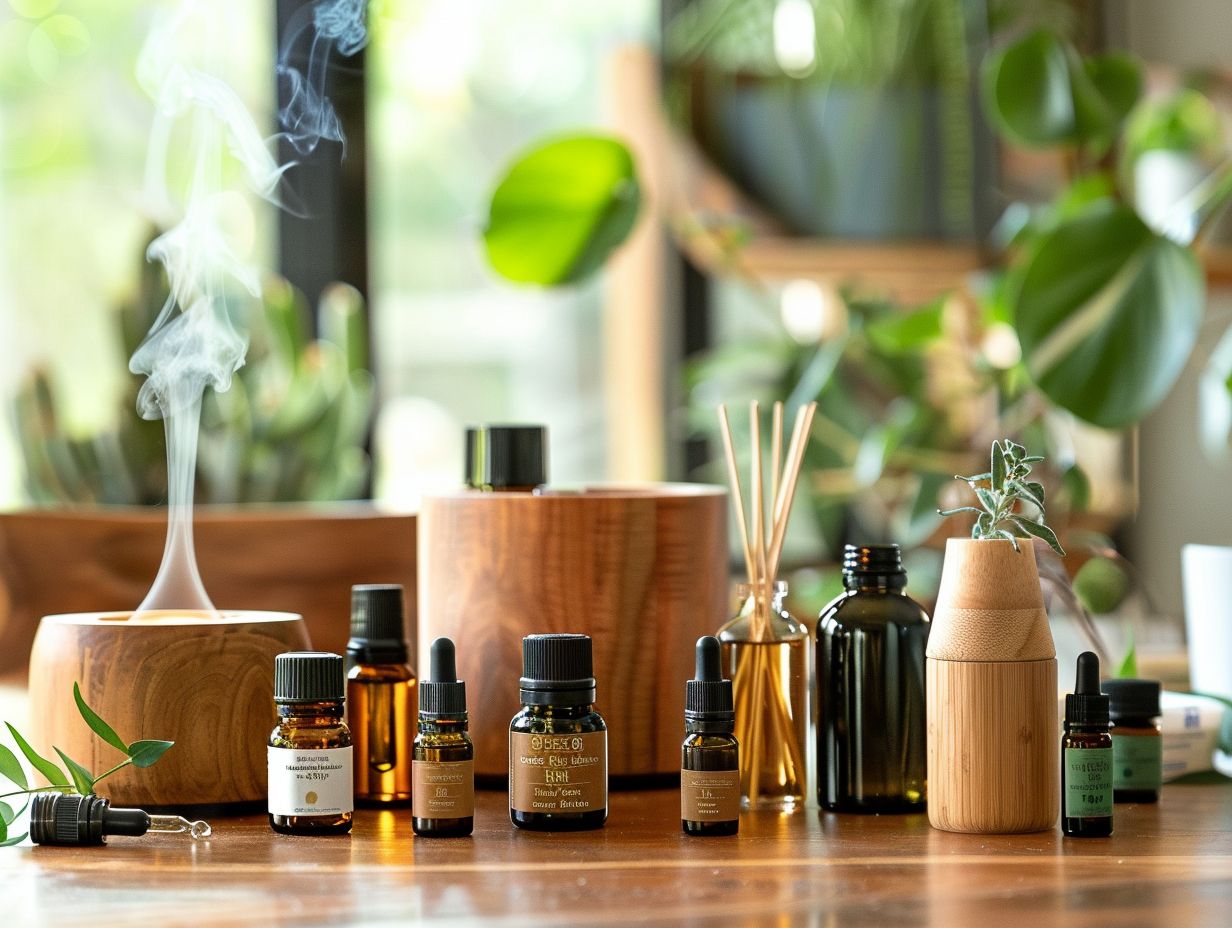
Lemon essential oil is known for its uplifting and energizing properties. It is often used in aromatherapy to boost mood, increase energy levels, and promote mental clarity and focus.
When inhaled, lemon essential oil stimulates the production of serotonin, a neurotransmitter that contributes to feelings of well-being and happiness. Its invigorating scent is also believed to reduce stress and anxiety, creating a more positive and revitalized mindset. The refreshing aroma of lemon oil can help combat feelings of fatigue and sluggishness, making it a popular choice for those seeking a natural energy boost.
How to Use Aromatherapy Essential Oils?
Aromatherapy essential oils can be used in various ways to enjoy their therapeutic benefits. Common methods include inhalation, topical application through massage, and diffusion using aromatherapy diffusers.
When using aromatherapy for health, essential oils for inhalation, a few drops can be added to a bowl of hot water for steam inhalation to relieve congestion or stress. For topical application, dilute the oils with a carrier oil like coconut or almond oil before applying them on the skin during a massage, promoting relaxation and pain relief.
Diffusing essential oils through aromatherapy devices, such as ultrasonic diffusers or nebulizers, can help purify the air, create a calming ambiance, and promote better sleep. Remember to use high-quality oils and follow recommended dilution ratios to maximize the benefits and minimize any risks.
Inhalation
Inhalation is a common method for using aromatherapy essential oils. When inhaled, the aromatic molecules travel to the brain through the nose, affecting emotions and triggering physiological responses.
One of the primary ways to inhale essential oils is through diffusion. Diffusers disperse the oils into the air, allowing you to breathe in the molecules. This method can have a direct impact on the limbic system, which is linked to emotions and memories. Depending on the oil used, inhalation can promote relaxation, boost energy levels, alleviate stress, or even improve focus and concentration.
Topical Application
Topical application of aromatherapy essential oils involves diluting the oils and applying them to the skin during massages or skincare routines. This method allows for direct absorption of the oils into the bloodstream.
When essential oils are topically applied, they penetrate the skin and enter the bloodstream, offering a myriad of benefits. The skin acts as a barrier, protecting the body from external elements, but it also allows for absorption of aromatherapy uses.
Essential oils can be diluted in carrier oils like coconut or almond oil before application to minimize skin irritation and maximize efficacy.
Aromatherapy Diffuser
Aromatherapy diffusers are devices that disperse essential oil molecules into the air, creating a fragrant and therapeutic atmosphere.
When utilizing aromatherapy diffusers, essential oil particles are released into the air, allowing for easy inhalation and absorption by the body. This method promotes relaxation, improves mood, and provides various health benefits. Not only do diffusers help in creating a calming environment, but they also act as natural air fresheners, eliminating unpleasant odors from the surroundings. The gentle diffusion of essential oils in the air can enhance sleep quality, alleviate stress, and boost overall well-being. Different types of diffusers offer unique features such as adjustable mist settings, LED lights for ambiance, and automatic shut-off timers for convenience.
Are There Any Risks or Side Effects of Using Aromatherapy Essential Oils?
While aromatherapy essential oils offer numerous benefits, it is essential to be aware of potential risks and side effects associated with their use. These may include skin irritation, allergic reactions, interactions with medications, and toxicity from ingestion.
When using essential oils for aromatherapy, always perform a patch test on a small area of skin to check for any adverse reactions before applying it more extensively. It is crucial to dilute essential oils properly as their concentrated nature can lead to skin irritation or burns if used undiluted.
Individuals with known allergies should be particularly cautious, as some essential oils may trigger allergic responses. Certain oils can interfere with prescription medications, so it is advisable to consult a healthcare professional before incorporating them into your aromatherapy routine.
Consuming essential oils orally is highly discouraged due to the risk of gastrointestinal distress, poisoning, or other serious health complications. Always keep essential oils out of reach of children and pets, and store them in a cool, dark place to prevent degradation.
Skin Irritation
One of the common risks associated with using aromatherapy essential oils is skin irritation. Direct contact with undiluted oils or sensitivity to specific compounds can lead to skin reactions.
To prevent skin irritations when using essential oils, it is recommended to always perform a patch test before widespread application. Diluting essential oils in a carrier oil, such as coconut or almond oil, can significantly reduce the risk of skin reactions. The general rule of thumb is to use 1-2 drops of essential oil per teaspoon of carrier oil for safe application. It is important to keep in mind that certain essential oils are more potent and may require further dilution.
Allergic Reactions
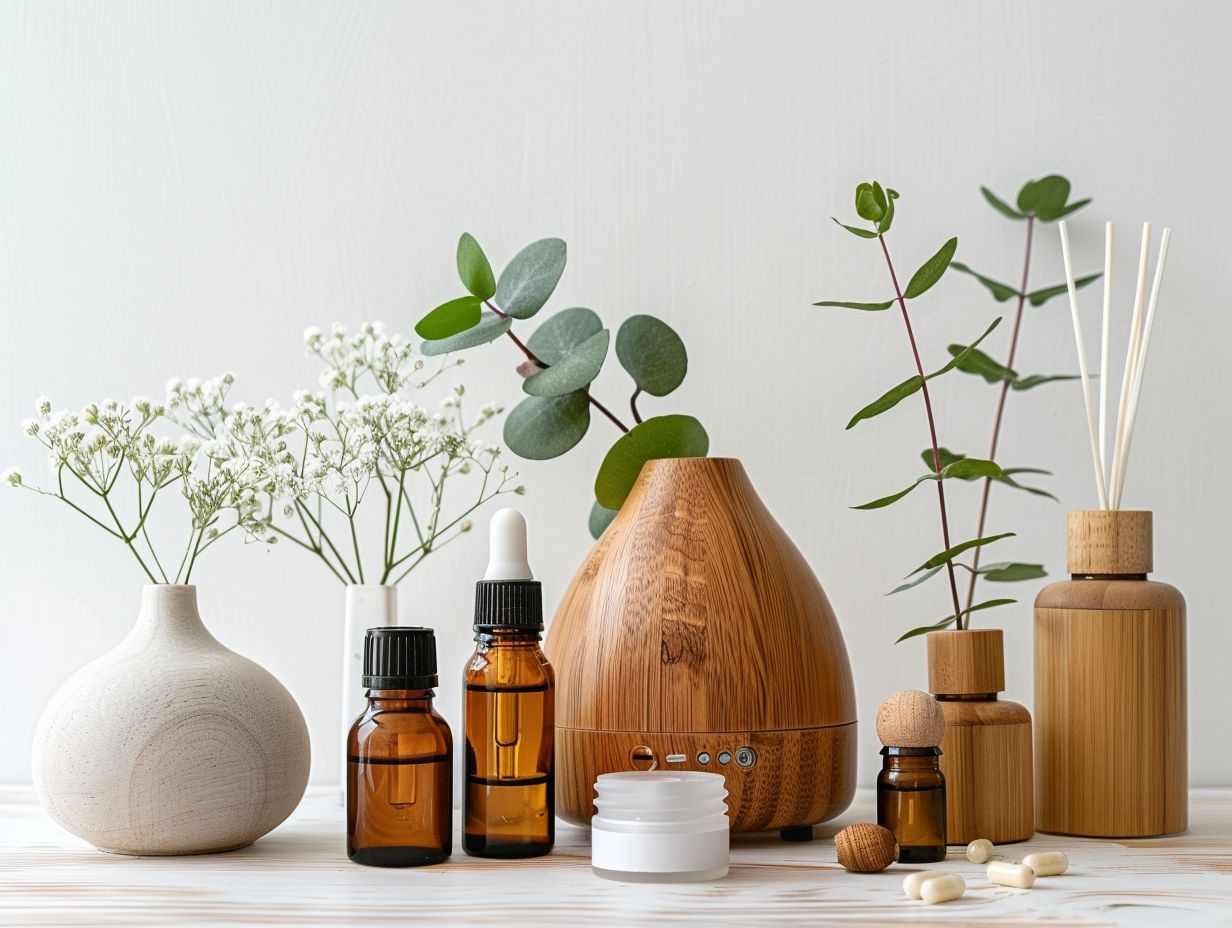
Some individuals may experience allergic reactions to certain essential oils, especially if they have sensitivities to specific chemical compounds present in the oils. Allergic responses can range from mild skin irritation to more severe symptoms.
It is essential for individuals using essential oils in aromatherapy to be aware of potential allergens and the symptoms that may indicate an allergic reaction. Common allergens found in essential oils include citral, limonene, and linalool. Symptoms of an allergic reaction can vary greatly, spanning from redness, itching, and hives to difficulty breathing, swelling, and even anaphylaxis.
To manage allergic responses, one should always perform a patch test before using a new essential oil topically: dilute a small amount of the oil and apply it to a small area of skin to check for any adverse reactions. If an allergic reaction occurs, cease the use of the oil immediately and seek medical advice. It is also advisable to consult with a healthcare professional or an aromatherapist when incorporating essential oils into your wellness routine, especially if you have known allergies.
Interactions with Medications
It is crucial to be cautious of interactions between aromatherapy essential oils and medications. Certain oils can affect the efficacy of drugs or may pose risks when combined with specific medications.
For instance, some essential oils, such as lavender or chamomile, have calming properties which might interact with sedatives or antidepressants, potentially enhancing their effects. Conversely, oils like grapefruit or eucalyptus could interfere with the metabolism of certain medications, altering their absorption rates or leading to unexpected side effects.
Given these considerations, it becomes paramount to consult healthcare professionals before incorporating essential oils into your routine, especially if you are currently on prescribed medications. The FDA guidelines provide useful information on the safety and potential interactions of various essential oils with drugs, serving as a valuable resource for informed decisions about your health.
Toxicity from Ingestion
Ingesting essential oils is a significant concern due to the potential toxicity of certain oils when consumed internally. Improper ingestion can lead to adverse effects on the digestive system and other organs.
Essential oils are highly concentrated extracts and are designed for external use in aromatherapy.
When ingested, these potent oils can cause irritation, nausea, vomiting, and even more severe reactions in some individuals. It’s critical to remember that essential oils are not regulated as food or drugs, so consuming them can pose serious health risks.
Proper guidance from qualified aromatherapists or healthcare professionals is essential to ensure safe usage. Always store oils out of reach of children and pets to prevent accidental ingestion, and strictly adhere to recommended dilution ratios when using them topically. For good aromatherapy oils, seek guidance from professionals.
Frequently Asked Questions
What are Aromatherapy Essential Oils used for?
Aromatherapy Essential Oils are used for a variety of purposes, including relaxation, mood enhancement, and physical and emotional well-being.
Can Aromatherapy Essential Oils help with stress and anxiety?
Yes, certain essential oils have been shown to have calming and relaxing effects on the mind and body, making them effective in reducing stress and anxiety.
How do I use Aromatherapy Essential Oils?
Aromatherapy Essential Oils can be used in a variety of ways, including inhalation, topical application, and even ingestion in some cases. It’s important to properly dilute and use essential oils according to instructions to avoid any potential side effects.
What are the most popular Aromatherapy Essential Oils?
Some of the most popular Aromatherapy Essential Oils include lavender, peppermint, eucalyptus, tea tree, and lemon. Each of these oils has unique properties and benefits.
Do Aromatherapy Essential Oils have any proven health benefits?
Yes, there is evidence that certain essential oils can have health benefits, such as reducing inflammation, relieving pain, and improving sleep. However, it’s important to consult with a healthcare professional before using essential oils for any specific health concerns.
Are there any safety precautions I should take when using Aromatherapy Essential Oils?
Yes, essential oils can be potent and may cause adverse reactions if not used properly. It’s important to do a patch test before using an essential oil topically and to follow recommended dilution ratios. Pregnant women, children, and individuals with certain health conditions should also consult with a doctor before using essential oils.

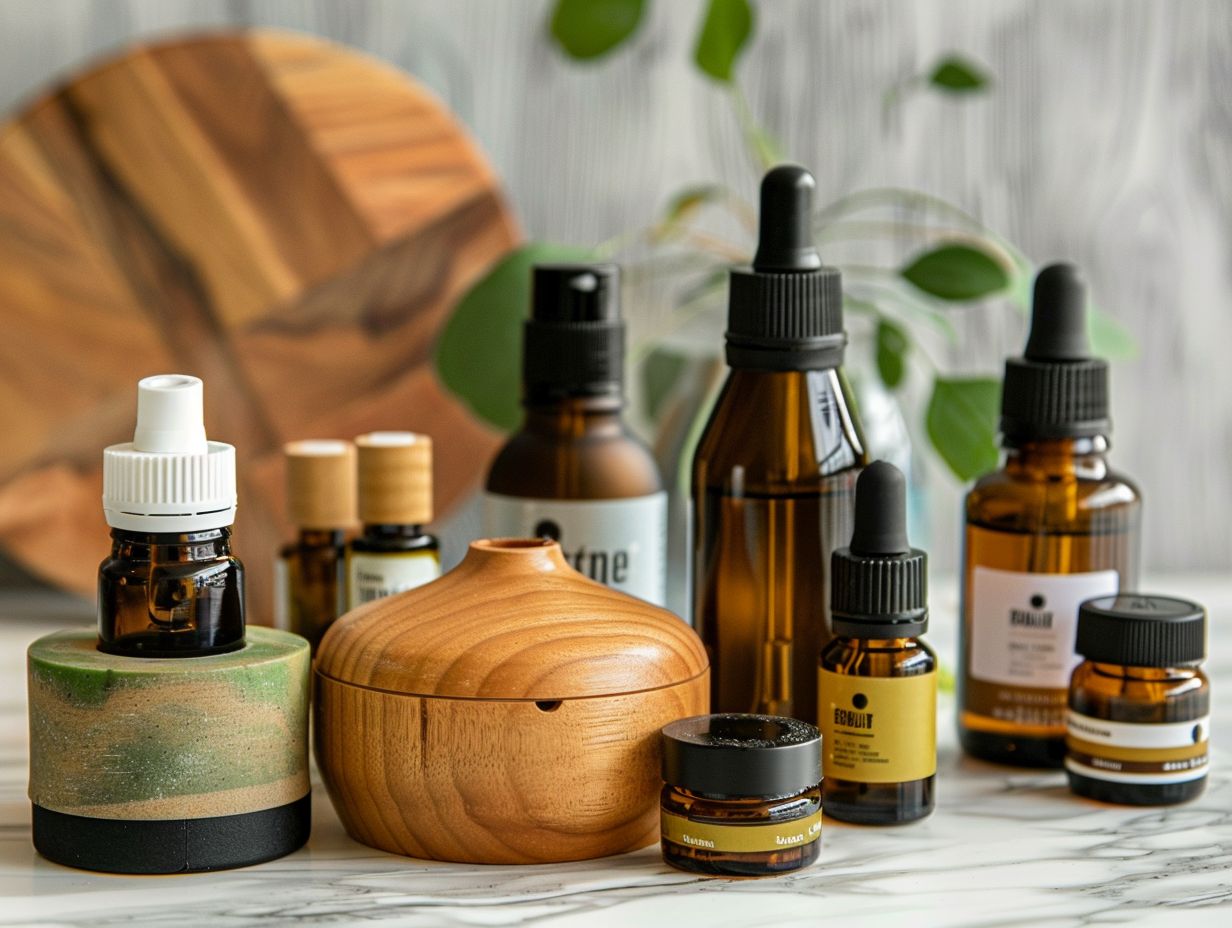
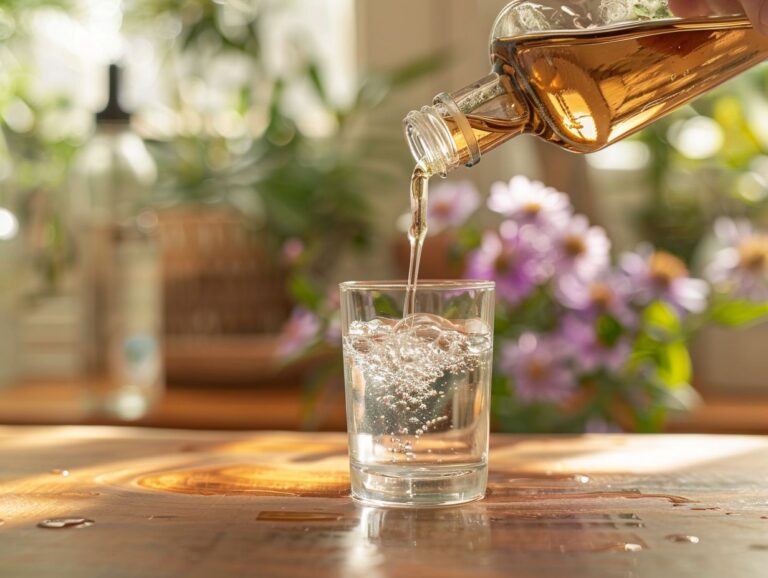
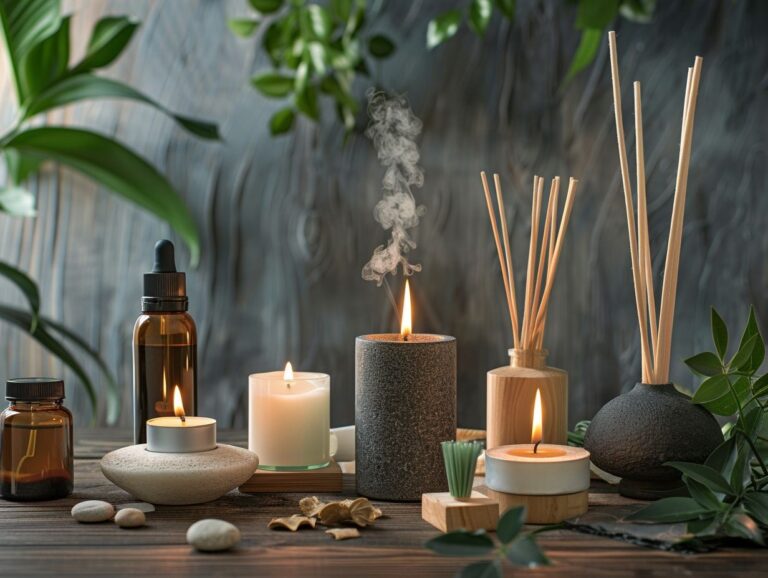
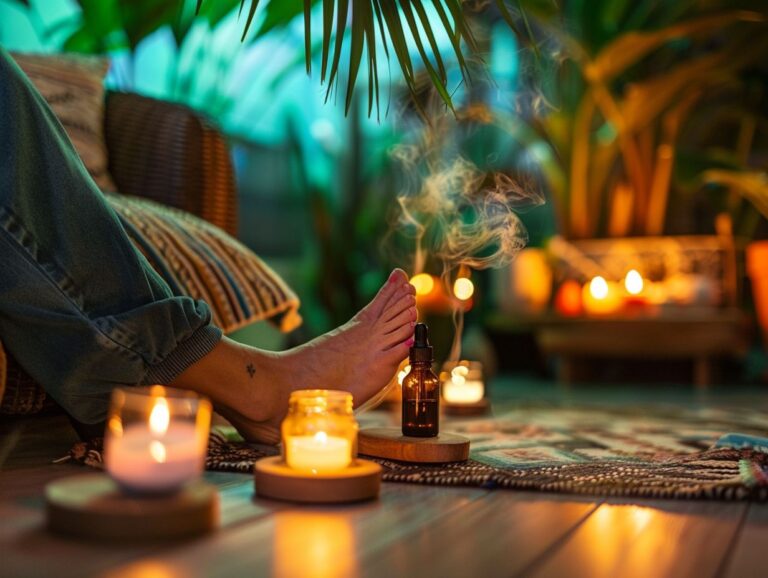
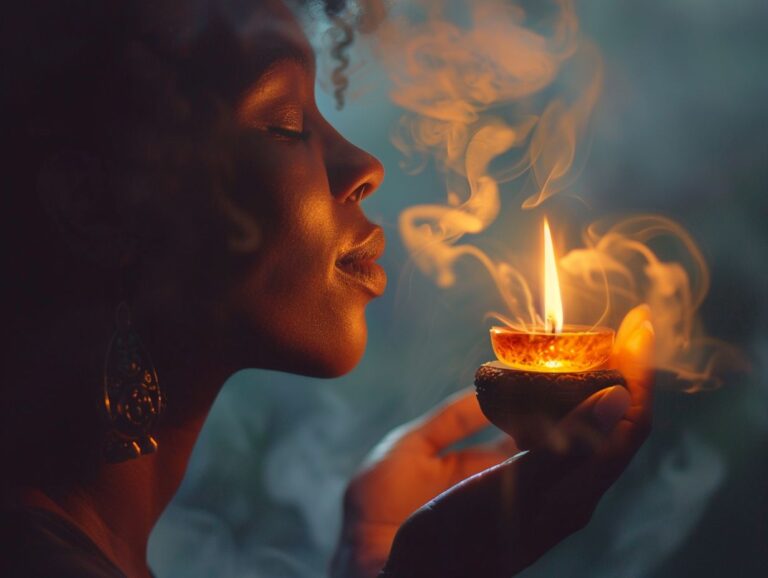
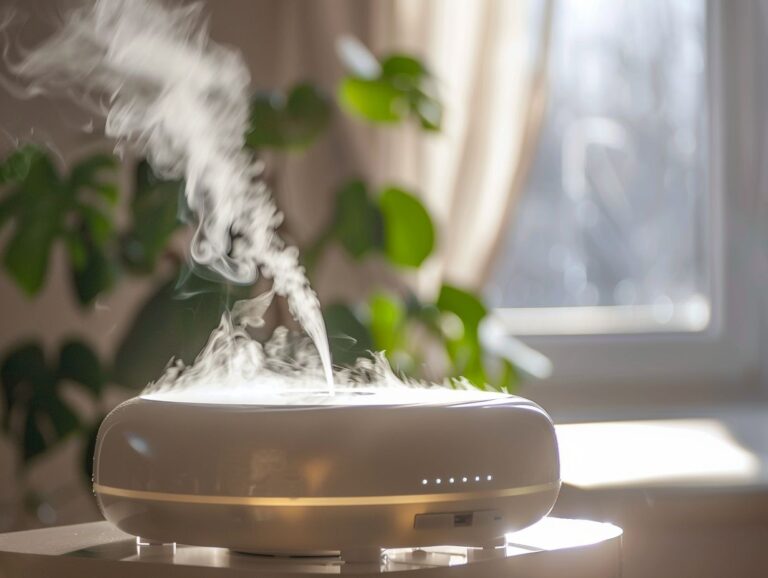
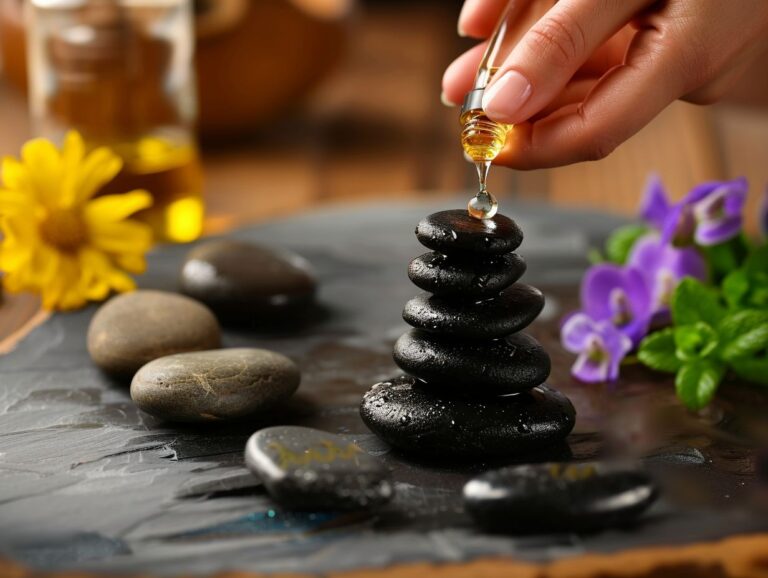
5 Comments